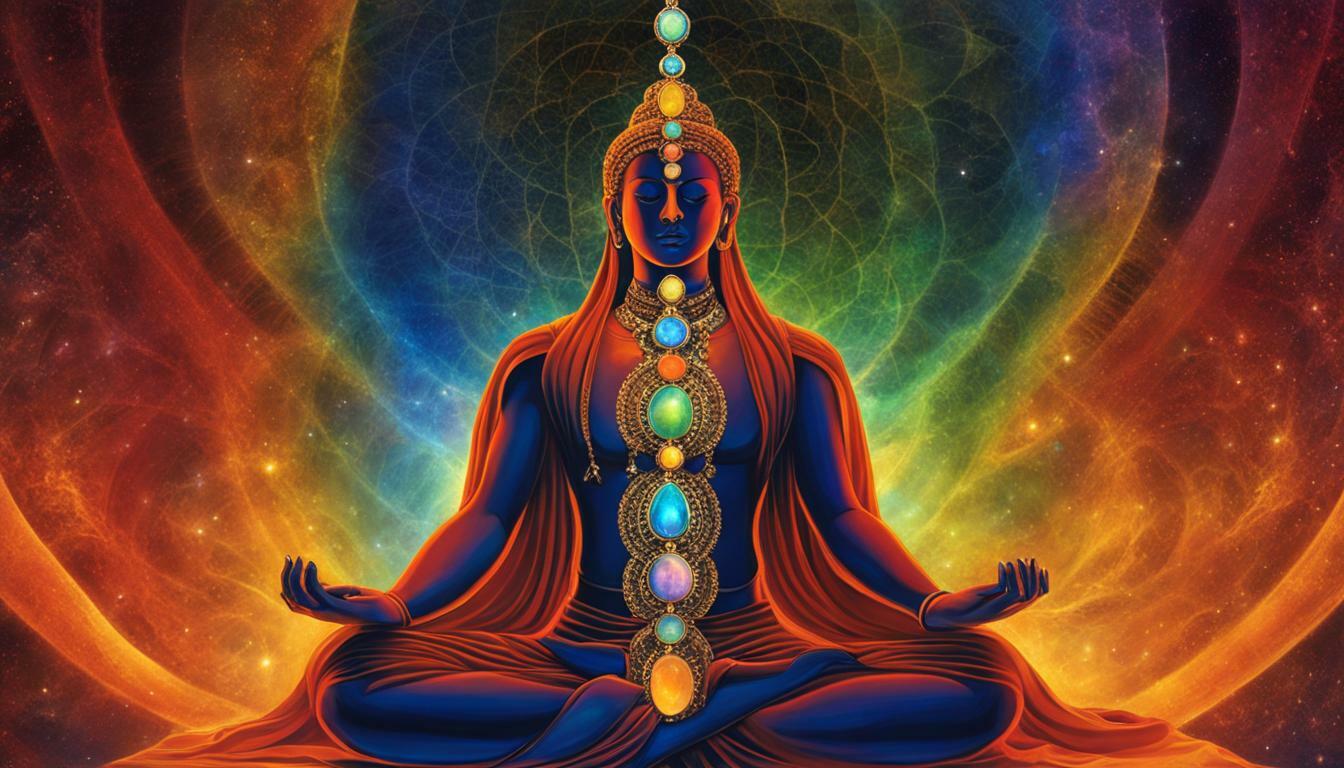Have you ever wondered about the significance of dreaming about the dead? In this article, we will unravel the mysteries behind dreams where the deceased visit you. Dreams can hold deep meanings and serve as a gateway to our subconscious. When deceased individuals appear in our dreams, it leaves us questioning the purpose and symbolism behind these encounters. Join us as we explore the realm of dream interpretation and delve into the possible subconscious connections that may be at play.
Key Takeaways:
- Visitation dreams can provide comfort and healing to those who are grieving.
- Characteristics of visitation dreams include feeling real and authentic, the presence of a deceased loved one, and conveying clear messages.
- Visitation dreams can be seen as a validation of grief and serve as a coping mechanism.
- Practical tips for coping with visitation dreams include not being afraid, seeking counseling or continuing bonds therapy, and practicing guided meditation.
- Visitation dreams can offer important insights and guidance from the subconscious.
Visitation Dreams: A Gateway to Spiritual Connections
Visitation dreams, also known as messages from beyond, can offer a profound spiritual connection to the departed, providing solace and insight. When the deceased appear in our dreams, it can be a powerful experience that leaves us questioning the meaning behind these encounters. Psychologists view visitation dreams as a form of validation for those who are grieving, as they offer a sense of comfort and support during the mourning process.
Characteristics of visitation dreams often include a distinct feeling of authenticity and realness. The presence of a deceased loved one in the dream is clear and vivid, with the ability to convey messages or emotions to the dreamer. These dreams are often described as peaceful and leave a lasting impact on the individual who experiences them.
The purpose of visitation dreams is still a subject of debate. Some interpret them as signs from deceased loved ones, offering guidance or reassurance from the beyond. Others view visitation dreams as a coping mechanism for grief, allowing the dreamer to process their emotions and find comfort in the presence of the deceased. Regardless of the interpretation, visitation dreams can serve as a source of healing and connection for those who have lost someone close to them.
When encountering visitation dreams, there are several tips for coping and embracing the experience. It is important not to be afraid of these encounters, as they can provide comfort and insight. Seeking counseling or continuing bonds therapy can offer additional support and guidance in navigating the grieving process. Practicing guided meditation can also be beneficial, as it allows for a deeper exploration of visitation dreams and enhances the understanding of their spiritual significance. By allowing these dreams to come and embracing the messages they hold, one can find solace and a renewed connection to the departed.
| Key Points: |
|---|
| – Visitation dreams provide a spiritual connection to the departed |
| – They offer solace and insight for the bereaved |
| – Characteristics of visitation dreams include authenticity and clear messages |
| – Their purpose is debated, with some viewing them as signs from deceased loved ones |
| – Tips for coping with visitation dreams include not being afraid and seeking counseling |
What are Visitation Dreams Like?
If you’ve had a dream where a deceased loved one appeared, you might be curious about how to interpret it and what sets it apart from other dreams. These types of dreams, known as visitation dreams, are often described as vivid and realistic experiences that can leave a profound impact on the dreamer. Unlike ordinary dreams, visitation dreams have distinct characteristics that make them stand out.
Visitation dreams are characterized by their authenticity and the strong presence of a deceased loved one. In these dreams, the visitation is often portrayed as being vivid and real, as if the dreamer is actually interacting with the departed individual. These dreams also tend to convey clear messages or provide guidance to the dreamer, leaving them with a sense of peace or comfort.
“The purpose of visitation dreams is not known for certain,” explains Dr. Elizabeth Dawson, a prominent dream psychologist. “Some people view these dreams as signs from deceased loved ones, while others see them as a coping mechanism for grief.” Whatever the purpose may be, visitation dreams are often seen as a way for the subconscious to communicate important information or provide solace to the dreamer.
Characteristics of Visitation Dreams:
| Characteristics | Description |
|---|---|
| Realness | Visitation dreams feel incredibly realistic, as if the dreamer is actually in the presence of the deceased loved one. |
| Presence | The deceased loved one is a central figure in the dream, often conveying messages, comfort, or guidance to the dreamer. |
| Clarity | Visitation dreams often have a clear and direct message or purpose, leaving the dreamer with a sense of understanding or resolution. |
| Peaceful Feelings | After experiencing a visitation dream, the dreamer often feels a sense of peace, comfort, or closure. |
While visitation dreams can be unsettling or emotional, they can also serve as a source of comfort and healing for those who are grieving. It is important to approach these dreams with an open mind and heart, allowing the messages and connections to unfold naturally. Seeking support through counseling or continuing bonds therapy can also be beneficial in processing visitation dreams and navigating the grieving process.
Remember, visitation dreams are a unique and personal experience, and their interpretation can vary from person to person. Trust your instincts and listen to your heart as you explore the meaning behind these powerful dreams.
Messages from the Other Side: Decoding Dream Visitations
Dream visits from deceased individuals can hold profound meaning and provide messages from the other side. Let’s explore the possible significance behind these dreams. When you experience a dream visitation from a deceased loved one, it can feel incredibly real and authentic. The presence of a deceased individual in your dream is often vivid and leaves you with a deep sense of connection.
In visitation dreams, clear messages are often conveyed. These messages can vary from simple gestures of love and comfort to more profound insights or guidance. The experience of receiving these messages can leave you feeling peaceful and reassured. It is believed by many that these dreams serve a purpose beyond the realm of our conscious understanding, acting as a means of communication between the living and the departed.
Psychologists and experts in grief counseling view visitation dreams as a validation of grief. They provide comfort and healing, allowing individuals to process their emotions and find solace in the presence of their deceased loved ones. While the exact purpose and meaning of these dreams may be open to interpretation, visitation dreams can be seen as a way for the subconscious to communicate important information or provide comfort during times of mourning.
| Characteristics of Visitation Dreams: |
|---|
| Feeling real and authentic |
| Presence of a deceased loved one |
| Conveying clear messages |
| Leaving the dreamer feeling peaceful |
Visitation dreams can be a powerful and transformative experience for those who have lost someone close to them. Embracing the messages and connections offered in these dreams can provide a sense of closure and deepen the bond with the departed. By not being afraid and seeking support through counseling or continuing bonds therapy, practicing guided meditation, and allowing the dreams to come, you can navigate the unique and profound journey of visitation dreams.
The Healing Power of Visitation Dreams
Grief is a complex journey, and visitation dreams can play a powerful role in providing validation and solace during the healing process. These dreams, where deceased loved ones appear, can serve as a source of comfort and reassurance for those who are grieving. Psychologists view visitation dreams as a validation of grief, affirming the deep emotional connection that continues beyond death.
In visitation dreams, the deceased individual may appear as vividly real and authentic, creating a profound sense of presence. These dreams often convey clear messages or provide a sense of closure, offering comfort to the dreamer. They can leave a lasting impact, leaving the dreamer feeling peaceful and comforted upon waking.
One of the remarkable aspects of visitation dreams is that they can serve as a coping mechanism for grief. They offer a tangible connection to the departed, allowing the dreamer to maintain a bond and find solace in their absence. While the purpose of visitation dreams remains uncertain, many interpret them as signs from deceased loved ones, providing guidance or reassurance during the grieving process.
“Visitation dreams are an extraordinary way for the subconscious to communicate important information or provide comfort,” says renowned psychologist Carl Jung. These dreams, which he referred to as “Big Dreams,” unlock the depths of the subconscious and offer profound insights into the healing journey. They can offer guidance, healing, and a deeper understanding of oneself and the world.
| Tips for Coping with Visitation Dreams |
|---|
| 1. Don’t be afraid: Approach visitation dreams with an open mind and heart. Embrace the experience and allow the messages and connections to unfold naturally. |
| 2. Seek counseling or continuing bonds therapy: Professional support can help you process your visitation dreams and navigate the complexities of grief. Therapists can provide guidance and a safe space to explore and share your experiences. |
| 3. Practice guided meditation: Incorporate guided meditation into your dream exploration journey. Meditation can help you relax, reflect, and gain deeper insights into your visitation dreams. |
| 4. Allow the dreams to come: Instead of suppressing or dismissing visitation dreams, embrace them and honor the connection with your deceased loved ones. Give yourself permission to experience the healing power of these dreams. |
Visitation dreams provide a unique opportunity to connect with the departed and find solace in their presence. As you embark on your healing journey, remember to cherish these dreams and the feelings they evoke. They can offer validation of your grief, comfort your heart, and guide you toward healing and inner growth.
Carl Jung’s Perspective on Visitation Dreams
Renowned psychologist Carl Jung believed that visitation dreams held deep spiritual significance and could offer profound insights into the depths of our subconscious. According to Jung, these dreams are not mere figments of our imagination, but rather a means for the collective unconscious to communicate with us. He referred to visitation dreams as “Big Dreams,” recognizing their potential to provide profound revelations and awakenings.
In Jungian psychology, dreams are seen as a window into our unconscious mind, where hidden truths and unresolved emotions reside. Through his extensive research and analysis of dreams, Jung observed that visitation dreams often serve as a bridge between the conscious and unconscious realms. They can bring forth repressed emotions, unresolved conflicts, and even provide guidance and healing.
One of the key aspects of Jung’s perspective on visitation dreams is the idea of archetypal symbols. Jung believed that certain symbols and motifs, such as deceased loved ones appearing in dreams, carry universal meanings that are deeply rooted in our collective unconscious. These symbols can represent important aspects of our own psyche or convey messages from the spiritual realm.
By exploring and interpreting visitation dreams, individuals can gain valuable insights into their own emotional and spiritual journeys. Jung encouraged individuals to engage in active dialogue with their dreams, journaling their experiences, and reflecting on the symbols and messages presented. Through this self-exploration, it becomes possible to tap into the wisdom of the unconscious and bring about personal growth and transformation.
Coping with Visitation Dreams
If visitation dreams leave you feeling unsettled or seeking guidance, there are several strategies that can help you navigate and find comfort in their presence. It’s important to remember that these dreams can be a source of healing and connection to the deceased, allowing you to process your grief and gain insights into your subconscious mind.
1. Seek Counseling or Continuing Bonds Therapy
One approach to coping with visitation dreams is to seek professional support through counseling or continuing bonds therapy. These therapeutic approaches can provide a safe space for you to explore and discuss your dreams, emotions, and experiences. A trained counselor or therapist can help you navigate the complexities of grief and offer guidance on how to integrate your visitation dreams into your healing journey.
2. Practice Guided Meditation
Guided meditation can be a powerful tool for understanding and embracing visitation dreams. By practicing meditation, you can create a calm and receptive state of mind, allowing you to explore the messages and emotions that arise from your dreams. There are various guided meditation resources available, both online and through meditation apps, that can assist you in connecting with your dreams and finding solace in their presence.
3. Embrace the Presence of the Dreams
Instead of fearing or rejecting visitation dreams, try embracing their presence. Approach these dreams with an open mind and heart, allowing them to come and unfold naturally. By accepting their significance, you may find comfort and guidance in the connections with your deceased loved ones. Recognize that visitation dreams are a unique way for the subconscious to communicate important information or provide comfort, and allow yourself to lean into the experience.
Remember, coping with visitation dreams is a personal journey, and what works for one person may not work for another. It’s essential to listen to your own instincts and needs as you navigate the realm of visitation dreams. Whether it’s seeking professional support, practicing meditation, or simply embracing the experience, finding solace in these dreams can help you honor your loved ones and find healing in the midst of grief.
Embracing the Experience: Don’t Be Afraid
It’s natural to feel apprehensive or fearful when encountering visitation dreams, but by embracing the experience, you can open yourself up to the healing and guidance they offer. Visitation dreams, where deceased loved ones appear, can be powerful and transformative, providing comfort to those who are grieving. These dreams often feel real and authentic, leaving a lasting impact on the dreamer.
Characteristics of visitation dreams include the presence of a deceased loved one, clear and meaningful messages, and an overall sense of peace. These dreams can serve as a validation of grief, offering solace to those who have lost someone dear to them. Psychologists view visitation dreams as a way for the subconscious to communicate important information or provide comfort during the grieving process.
When faced with visitation dreams, it’s important not to be afraid. Embracing the experience allows for a deeper connection with the departed and opens the door to spiritual insights. Seeking support through counseling or continuing bonds therapy can also provide guidance and understanding. Additionally, practicing guided meditation can help in exploring and interpreting these dreams, allowing for a deeper exploration of their meaning.
Allowing visitation dreams to come and embracing their messages can be a transformative experience. It’s through these dreams that the subconscious unveils important insights and provides a sense of closure and connection to the deceased. So, don’t be afraid. Instead, approach visitation dreams with an open heart and an open mind, ready to receive the healing and guidance they offer.
Seeking Support: Counseling and Continuing Bonds Therapy
If visitation dreams bring up unresolved emotions or deeper grief, seeking the guidance of a counselor or engaging in continuing bonds therapy can provide invaluable support. Talking to a counselor can help you explore and process the emotions that arise from these dreams, offering a safe space to express your feelings and gain clarity on your experiences. Continuing bonds therapy, specifically designed for those who have lost a loved one, can help you maintain a connection with the deceased while navigating the grieving process.
During counseling sessions, you can discuss your visitation dreams in depth, exploring their meanings and uncovering any underlying emotions or unresolved issues. A licensed therapist can offer guidance and techniques to cope with the emotions that arise from these dreams, helping you find peace and healing. Additionally, continuing bonds therapy focuses on nurturing a connection with the deceased, allowing you to honor their memory and maintain a sense of closeness.
Engaging in counseling or continuing bonds therapy can provide a supportive and healing environment. These therapeutic approaches are designed to help you process your visitation dreams, navigate the complexities of grief, and find ways to incorporate the messages and connections from your dreams into your daily life. Remember, seeking support is a sign of strength and can be an integral part of your healing journey.
Benefits of Seeking Counseling or Continuing Bonds Therapy:
- Validation of Emotions: Talking to a counselor or engaging in continuing bonds therapy can validate your emotions and experiences related to visitation dreams, helping you feel understood and supported.
- Emotional Release: Counseling sessions provide a safe space to express and process your emotions, allowing for emotional release and a sense of relief.
- Coping Mechanisms: Therapists can offer coping strategies and techniques to help you manage the emotions that arise from visitation dreams, providing you with practical tools for navigating your grief.
- Healing and Transformation: Through counseling or continuing bonds therapy, you can embark on a journey of healing and transformation, finding ways to integrate the messages and connections from your dreams into your life and honoring the memory of your loved ones.
Remember, seeking counseling or continuing bonds therapy is a personal choice and can be a powerful step towards finding comfort, healing, and understanding in the midst of visitation dreams. By seeking support, you are giving yourself the opportunity to explore your dreams, process your grief, and find solace in the connection you have with your deceased loved ones.
Table: Benefits of Seeking Counseling or Continuing Bonds Therapy
| Benefits | Description |
|---|---|
| Validation of Emotions | Talking to a counselor or engaging in continuing bonds therapy can validate your emotions and experiences related to visitation dreams, helping you feel understood and supported. |
| Emotional Release | Counseling sessions provide a safe space to express and process your emotions, allowing for emotional release and a sense of relief. |
| Coping Mechanisms | Therapists can offer coping strategies and techniques to help you manage the emotions that arise from visitation dreams, providing you with practical tools for navigating your grief. |
| Healing and Transformation | Through counseling or continuing bonds therapy, you can embark on a journey of healing and transformation, finding ways to integrate the messages and connections from your dreams into your life and honoring the memory of your loved ones. |
Guided Meditation for Dream Exploration
Guided meditation can be a powerful practice to enhance your dream exploration and provide a deeper understanding of the messages and connections within visitation dreams. By incorporating meditation into your journey, you can create a calm and focused state of mind that is conducive to receiving and interpreting these meaningful dreams.
During your meditation session, find a quiet and comfortable space where you can relax and center yourself. Close your eyes and take a few deep breaths, allowing your body to settle into a state of relaxation. As you begin to feel more relaxed, envision yourself in a peaceful setting, such as a serene garden or a tranquil beach.
Once you have created this mental space, imagine yourself inviting the presence of your deceased loved one into your meditation. Visualize them standing before you, radiating love and warmth. Take a moment to connect with their energy and express any thoughts or feelings you may have.
As your meditation continues, allow your mind to remain open and receptive to any messages or insights that may arise. Pay attention to any sensations, images, or emotions that come up during this process. Trust that your subconscious and the spiritual realm are guiding you towards understanding and healing.
| Benefits of Guided Meditation for Dream Exploration |
|---|
| Enhances relaxation and focus |
| Creates a conducive environment for dream connection |
| Facilitates communication with the subconscious |
| Expands self-awareness and understanding |
Guided Meditation Tips:
- Find a guided meditation specifically designed for dream exploration
- Use headphones to enhance the immersive experience
- Set aside dedicated time for meditation, preferably before bed
- Create a peaceful environment free from distractions
- Be patient and open-minded, allowing the meditation to unfold naturally
“Meditation is not a way of making your mind quiet. It is a way of entering into the quiet that is already there.” – Deepak Chopra
Remember, visitation dreams can offer valuable insights and comfort, and guided meditation can be a powerful tool to enhance your experience and deepen your understanding. Embrace the practice of meditation and allow the messages and connections within your dreams to guide you on your journey of healing and self-discovery.
The Subconscious Unveiled: Important Insights from Visitation Dreams
Our subconscious has a way of communicating with us through dreams, and visitation dreams may hold significant information and messages that can guide and comfort us. When we dream of deceased loved ones, it can be a profound and emotionally charged experience. These dreams have distinct characteristics, often feeling real and authentic, with a clear presence of the departed.
Visitation dreams are known for conveying messages that bring solace and healing to those who are grieving. The symbolism and imagery associated with these dreams can provide insights into the spiritual realm, offering a sense of connection with the deceased. The messages received in visitation dreams may not always be direct or obvious, but they often leave the dreamer feeling peaceful and comforted.
While the purpose of visitation dreams is not fully understood, many psychologists view them as a validation of grief. These dreams can serve as a coping mechanism, helping individuals process their emotions and find closure. Seeking support through counseling or continuing bonds therapy can be beneficial for those struggling with the loss of a loved one and their visitation dreams.
| Tips for coping with visitation dreams: |
|---|
| 1. Do not be afraid: Embrace the experience and approach visitation dreams with an open mind and heart. |
| 2. Seek counseling or continuing bonds therapy: Professional support can help navigate the grieving process and provide guidance on understanding the significance of visitation dreams. |
| 3. Practice guided meditation: Meditation can aid in exploring and interpreting visitation dreams, allowing for deeper self-reflection and connection with the subconscious. |
| 4. Allow the dreams to come: Be receptive and accepting of visitation dreams, recognizing them as a potential source of comfort and guidance. |
It is important to remember that visitation dreams can hold important information and serve as a means of communication from the subconscious. They offer a unique opportunity to connect with the departed and find solace in their presence. Whether viewed as spiritual messages or psychological coping mechanisms, visitation dreams can provide comfort and healing to those who have lost loved ones.
Understanding the Power of Visitation Dreams
Visitation dreams hold a profound power to comfort, heal, and guide us through our grief, providing a unique connection to our departed loved ones. When the dead visit us in our dreams, it can be an intense and emotional experience. These dreams, known as visitation dreams, have been observed to offer solace and a sense of closure to those who are grieving.
Psychologists view visitation dreams as a validation of grief, a way for the subconscious to acknowledge and process the loss. Carl Jung, a renowned psychologist, referred to these dreams as “Big Dreams,” highlighting their spiritual significance. They often feel incredibly vivid and real, leaving the dreamer with a tangible presence of their deceased loved one.
In visitation dreams, deceased individuals may convey clear messages or provide comfort to the dreamer. These dreams have distinct characteristics that set them apart from regular dreams, such as a heightened sense of authenticity and a lingering feeling of peace upon waking. While the purpose of visitation dreams remains uncertain, they are experienced by many as a way to maintain a connection with those who have passed.
When encountering visitation dreams, it is essential not to be afraid. Embracing the experience allows us to fully engage with the messages and connections these dreams provide. Seeking support through counseling or continuing bonds therapy can be beneficial for navigating the grieving process and understanding the significance of these dreams. Engaging in guided meditation practices can also aid in exploring and interpreting visitation dreams.
Visitation dreams offer a glimpse into the subconscious, potentially delivering important insights and guidance. Whether they are seen as spiritual signs or as a coping mechanism, these dreams serve as a source of comfort and healing for those who mourn. By embracing the profound power of visitation dreams, we can find solace and a renewed connection with our departed loved ones.
Is Dreaming About the Dead Visiting You a Sign of Repeated Dreams?
Dreaming about the dead visiting you can be unsettling. Some believe that dreaming the same thing repeatedly, especially with deceased loved ones, may signify a deeper meaning. Whether it’s a sign of closure, unresolved emotions, or a spiritual connection, these dreams often leave a lasting impact. Exploring the significance and personal interpretation of dreaming the same thing repeatedly can help provide insight into our subconscious and emotions.
FAQ
What are visitation dreams?
Visitation dreams are dreams in which deceased individuals appear and interact with the dreamer.
How do visitation dreams feel?
Visitation dreams often feel real and authentic, as if the deceased loved one is truly present.
What are the characteristics of visitation dreams?
Visitation dreams typically involve the presence of a deceased loved one, clear messages, and leave the dreamer feeling peaceful.
What is the purpose of visitation dreams?
The purpose of visitation dreams is not known for certain, but they are seen as a validation of grief by psychologists and may be a way for the subconscious to communicate important information or provide comfort.
Are visitation dreams signs from deceased loved ones?
Some view visitation dreams as signs from deceased loved ones, while others see them as a coping mechanism for grief.
How can I cope with visitation dreams?
Coping with visitation dreams can involve not being afraid, seeking counseling or continuing bonds therapy, practicing guided meditation, and allowing the dreams to come.








